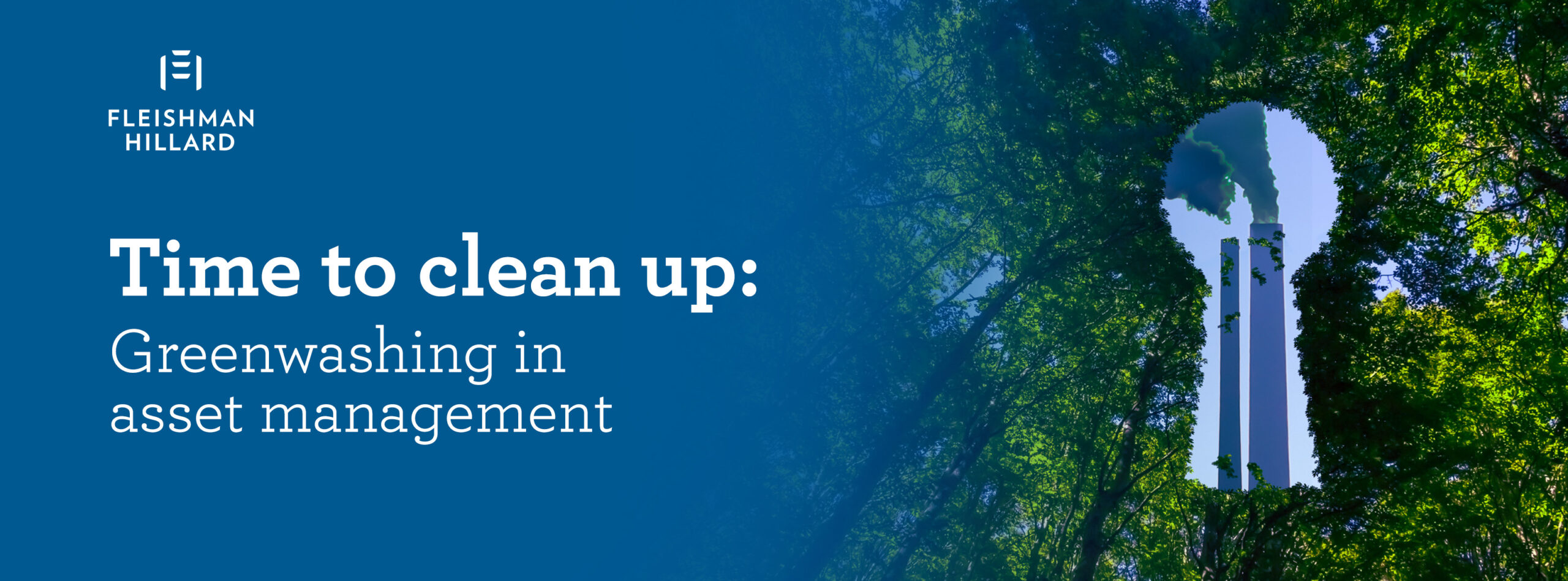
Caitlin Whyte, senior account manager
Earlier this year, an asset management firm made global headlines after its offices were raided in Frankfurt, following accusations of greenwashing. In New York, the US Securities and Exchange Commission fined a different investment manager $1.5m for allegedly misstating and omitting information about their ESG investments.
Back in the UK, the tidal wave of activity and awareness around tackling climate change continues to build. For many in asset management, 2022 has been a year of unprecedented scrutiny. This will only keep growing, which makes effective communications to avoid greenwashing, and accusations of greenwashing, an increasing strategic priority.
Increasing scrutiny
The Financial Conduct Authority (FCA) has made it clear that asset managers have a crucial role to play in helping the UK transition towards a more sustainable, net-zero-orientated economy. They stated that while they currently had no active investigations into greenwashing, they are pushing several firms to alter ESG-related fund and website disclosures.
From this financial year (starting April 2022), more than 1,300 of the largest registered UK companies and financial institutions will have mandated TCFD-based reporting and just this month, the regulator wrote an open letter to CEOs as it prepares to crack down on greenwashing in alternatives. This is just a handful of the announcements, papers, and regulations announced this year, suggesting that there will only be more for asset managers to get their heads around in the coming 12 months.
So, how can companies avoid greenwashing claims?
Put simply, you need to ensure that your communications are driven by authentic action. Find out (or influence if you can) the steps your company is taking to tackle climate change and use that to inform your communications strategy.
More specifically, there are some key points to remember:
- Don’t be vague: Where you can, be specific about where you invest or how your approach embeds ESG principles. Is your fund ‘ESG friendly’ or does it focus just on the environmental aspect of the term? Use clear language that explicitly tells the consumer or industry about what you’re doing, how you’re doing it and what you’re aiming to achieve. Even better, where this aligns with reporting frameworks, make that explicit.
- Do before you say: The time for words without action is over. To be completely transparent, asset managers need to act before they speak. Not only does this ensure that what you’re saying is completely authentic, but it also helps you lead your narrative with the actions you are taking, rather than those you plan to take. Plan to divest, then do that and announce after.
- Own your challenges: Every company has its challenges when it comes to tackling climate change and asset management is no exception. If your brand does get accused of greenwashing or critiqued for not taking certain actions, own it, show that you are taking clear steps to rectify it, and then actually take those steps. Consumers would rather see companies try than doing nothing at all.
- Forget the newshook: This one grieves me slightly as someone who sees great value in a traditional press office calendar, but just because it’s world recycling day, it doesn’t mean you should be saying something if you can’t back up your statement. Look critically at your actions, and the sustainable funds on offer, and decide if you genuinely have authentic, credible actions to share. If not, maybe there’s a challenge you’re facing that you think the industry could come together to tackle. It doesn’t mean you shouldn’t be commenting; instead, it’s about carefully considering where and when you can be the most authentic.
After a summer of record temperatures and weather extremes around the globe, it’s undeniable that climate change is accelerating, and we know asset managers have a clear role to play in tackling it. For those who take genuine actions, speak authentically and transparently, and are willing to discuss their challenges, there’s an opportunity to build great trust and loyalty, while crucially protecting their reputations, profit and the planet.
Find Out More
-
Achieving Outsized Impact by Building Stronger Country Reputation
February 18, 2025


